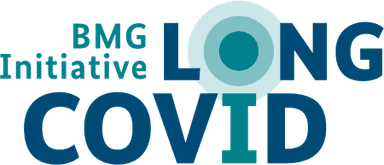Aug 2023 | Nature Medicine | JAMA Internal Medicine | Eric J. Topol
New studies have investigated secondary diseases and mortality risk in patients who have been infected with SARS-CoV-2.
In a study published in the journal "Nature Medicine", people who were infected with SARS-CoV-2 were followed up for two years. They were then tested against people without a proven SARS-CoV-2 infection (the so-called control group). The objective of this study was to investigate the mortality risk and various secondary diseases that occur after a SARS-CoV-2 infection.
It showed that the mortality risk was elevated over the two years in people who were hospitalised due to a severe progression of the disease in comparison to people who did not have to be hospitalised due to their infection. In addition, after hospitalisation for a severe progression, there was a higher rate of persistent sequelae in various organ systems.
Yet another study was published in the scientific journal JAMA International Medicine. Over a two-year period, the researchers followed more than 200,000 veterans who had previously contracted COVID-19. The data collected was compared with data from people who did not have COVID-19. Those with a mild progression (no hospitalisation) showed an increased risk of mortality only in the first six months after infection.
The results of the studies were summarised by the US cardiologist Eric J. Topol in his blog.
Nature Medicine
The Nature Medicine journal is published monthly by the Nature publishing group. It publishes articles on current topics in biomedical research geared towards scientists and those working in the medical profession.
JAMA Internal Medicine
JAMA Internal Medicine is a scientific journal published by the American Medical Association. It publishes original research relevant to internal medicine and related fields.
Eric J. Topol
Eric J. Topol is a US cardiologist and author. He is Professor of Molecular Medicine, Executive Vice President of Scripps Research and Founder and Director of the Scripps Research Translational Institute. Topol has published over 1,300 scientific articles and three best-selling books on the future of medicine.
